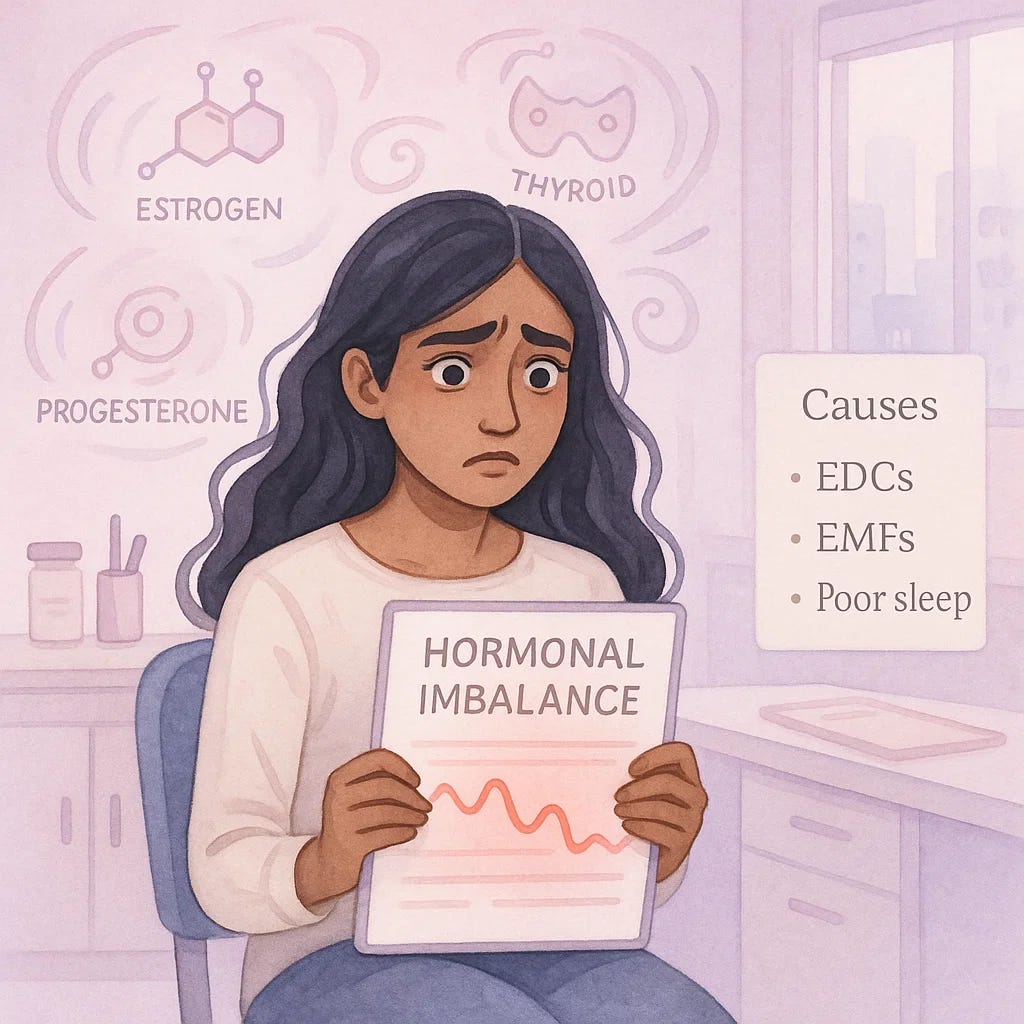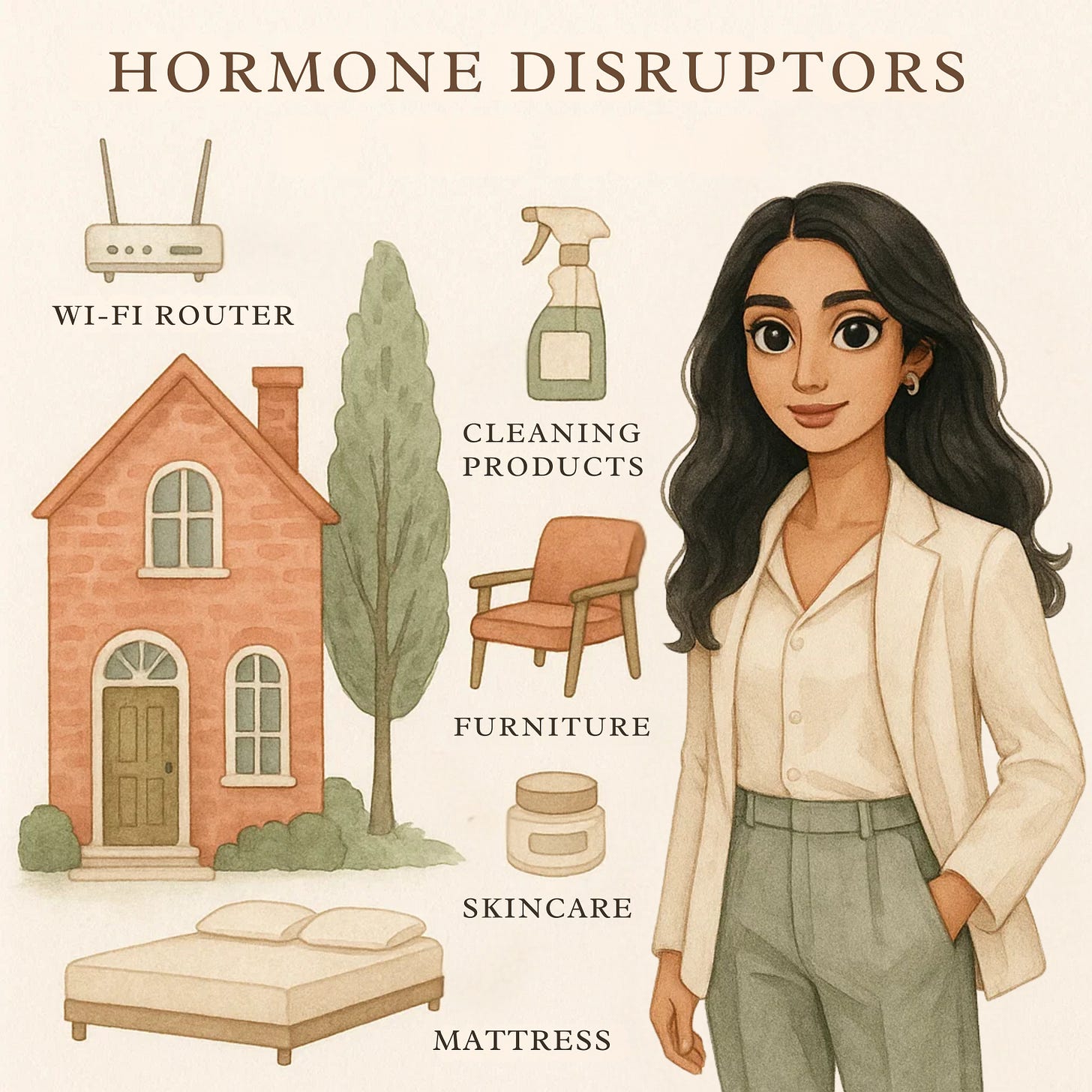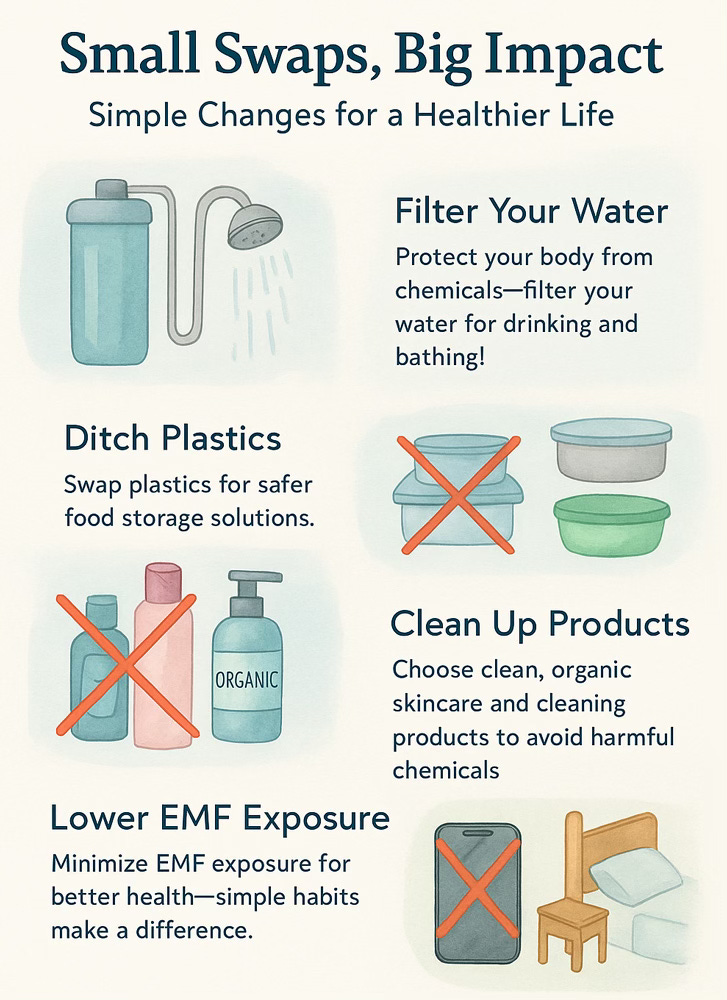We’re seeing more women than ever struggle with hormonal imbalances, fertility issues, PCOS, and thyroid dysfunction.
The common advice? Take a pill and blame it on stress, diet, birth control, or genetics - and move on.
But what if there’s something even bigger at play—something inside our own homes?
For years, I didn’t question any of it.
Not when my cycles were irregular, not when I had crushing fatigue, and not even when my doctors told me at 21 years old that I should give up on my dream of having a family because I’d likely never conceive naturally.
That moment was devastating.
What do you mean?!
But what no one told me back then was how much my environment could be affecting my hormones.
Fortunately, I reversed what I was told was impossible.
But I had to go far beyond diet and exercise—I had to take a hard look at my surroundings.
The problem? No one was talking about how the air we breathe, the water we drink, and the invisible exposures in our homes are quietly throwing our hormones off balance.
Let’s talk about it.
How Your Home May Be Disrupting Your Hormones
Most of us don’t realise it, but our homes are full of silent hormone disruptors—from toxic chemicals in furniture and cleaning products to the constant EMF exposure from Wi-Fi and electronics.
Here’s how your home environment could be working against your body every single day.
Endocrine Disruptors—The Silent Hormone Hijackers
We’ve all heard about BPA in plastics and hormone-mimicking chemicals in beauty products, but the problem runs much deeper than that.
Endocrine-disrupting chemicals (EDCs) are everywhere—in the air we breathe, the water we drink, the furniture we sit on, and even the mattress we sleep on.
These chemicals mimic estrogen, suppress progesterone, and interfere with the delicate balance of our hormones.
Where they hide in your home:
• Furniture & mattresses: Flame retardants interfere with thyroid function and fertility.
• Tap water: Contaminated with pharmaceutical residues, chlorine byproducts, and heavy metals.
• Skincare & cleaning products: Loaded with phthalates, parabens, and synthetic fragrances that act as xenoestrogens (fake estrogens).
What this Means for Women:
• Higher estrogen levels = estrogen dominance → Increased risk of PCOS, fibroids, painful periods.
• Thyroid dysfunction = sluggish metabolism, low energy, and fertility struggles.
• Low progesterone = shortened luteal phase, irregular cycles, trouble sustaining pregnancy.
It’s all connected—and yet, most of us aren’t warned about it.
EMFs & Fertility—An Overlooked Risk Factor
I was already aware of toxins in food and products, but EMFs?
That was a whole new world for me.
The more I researched, the more I found that Wi-Fi, Bluetooth, and smartphones come with unintended consequences for women’s reproductive health.
But no one told me this. Why isn’t anyone talking about this?
Okay, great. So basically, everything in my home is out to get me?
That’s how I felt at first.
But once I started making small swaps, things shifted.
✅ So, What Can You Do?
You don’t need to throw everything out and start over.
Small, intentional swaps can make a huge difference.
1️⃣ Filter your water – Tap water carries hormone-disrupting contaminants. Invest in a high-quality water filter for drinking and bathing (I love my long baths but I am not willing to lie in a pool of chemicals letting them seep into my skin - no thank you!)
2️⃣ Ditch plastics – Especially for food storage. Opt for glass, stainless steel, or silicone alternatives.
3️⃣ Clean up your skincare & cleaning products – Avoid synthetic fragrances, parabens, and phthalates. Look for clean, organic options.
4️⃣ Lower EMF exposure – Turn off Wi-Fi at night, keep phones out of your pocket and off your nightstand while sleeping.
I made small, intentional changes in my home and saw massive shifts in my hormones, sleep, and energy levels.
I know what it’s like to feel powerless when your body isn’t working the way it should. I know what it’s like to be told your fertility is out of your hands.
But what I’ve learned is this: your environment plays a bigger role than you’ve been told.
👉 You don’t have to accept hormone imbalances as normal.
👉 You don’t have to sit back and hope for the best.
👉 You can take action, starting with your home.
I am grateful you are here and if you want to learn more. Subscribe so you don’t miss the next post!








Love this, and such good actionable steps- thank you for sharing